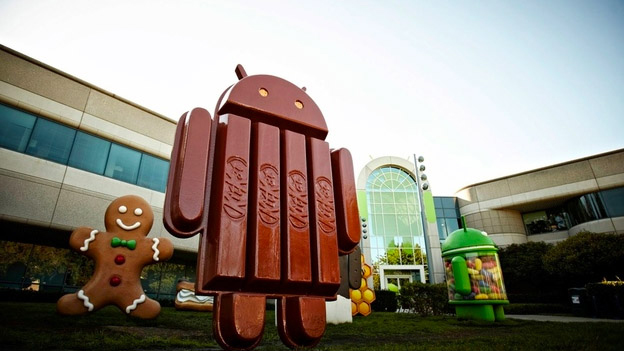Why can't they get software updates right first time?
Updates are meant to fix things, not break them

Sign up for breaking news, reviews, opinion, top tech deals, and more.
You are now subscribed
Your newsletter sign-up was successful
You spend days, weeks, months, and in the case of some Android models, years, waiting for the latest software update to hit your digital thing, then what happens?
It breaks something. And you wish you had your old version back. But you can't, not without reading forums and downloading tools that may well break it completely. So you're stuck with your broken phone or tablet and life is pretty much ruined.
The long awaited Android Lollipop release hit Nexus devices recently, and what happened? It slowed some machines to a crunch, stopped some apps from working altogether and made many machines generally unstable.
None of this was known before launch, of course, when commenters only saw all the pretty new design stuff and wanted it on their phones and tablets as soon as possible.
Hardcore users have found ways to make the Android 5.0 Nexus release work a little better on afflicted machines by editing settings and deleting apps, but in a device aimed at attracting mainstream users, that's no help at all.
Your dad's not going to attempt deactivating Google Now and changing page transition effects to see if it fixes anything on his newly clunky Nexus 7. He'll put it in a cupboard or buy an iPad.
Not that Apple's managed a better job of it.
Sign up for breaking news, reviews, opinion, top tech deals, and more.
iOS 8 was riddled with bugs that required hasty patching, a process that's still ongoing.
The latest PS4 software update also broke things. Some users couldn't take their machines out of standby mode after applying the update, ruining the point of it all once again.
Leave it alone
Update notifications used to be exciting, bringing the promise of new things and something to show off about. Now they're massive warning signs that your expensive gadget might be about to break, get wiped or be rendered as clunky as a budget model by an inept software upgrade.
At least we can install bug fixes, though!
Our devices make themselves useless for 20 minutes again while they download and install a version of the software that tries to fix the previous breakages and, if we're unlucky, may introduce a few new ones.
What's the problem with getting things right first time? Is it because we're all such moaners we're forcing the tech companies to release updates before they're really ready?
Would another fortnight of fiddling with the Android 5.0 release have resulted in an update that didn't break quite so many devices?
Would another two weeks of Google being badmouthed on the internet for being too slow be worth delaying it, and avoiding the subsequent post-release badmouthing?
Trust fund blown
This sort of ongoing ineptitude breeds a mistrust of the entire process.
Once your mum's had her phone rendered useless through a firmware update gone bad, she's unlikely to hit any of the update notifications in the future.
So when there's a massive security hole discovered in her Galaxy M for Mum it'll stay there until she upgrades it in six years time, because last time she did an update the Wi-Fi stopped working for three months so she's not trying THAT again.
Tech history is so littered with examples of updates making things worse, it's almost as if the hardware makers have some sort of vested interest in making sure we buy new models when they balls up the old ones.